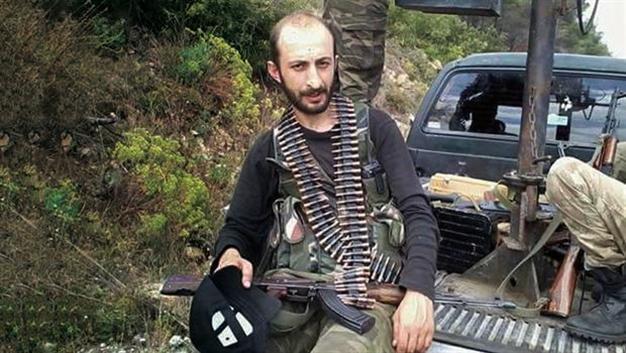Moscow demands arrest of alleged killer of downed Russian jet pilot
MOSCOW – Agence France-Presse
 Moscow on Dec. 30 called for Ankara to arrest a rebel who it claims killed the pilot of the Russian jet downed by Turkey last month on the Syrian border.
Moscow on Dec. 30 called for Ankara to arrest a rebel who it claims killed the pilot of the Russian jet downed by Turkey last month on the Syrian border.“We demand that the Turkish authorities take immediate steps to apprehend Alparslan Çelik and his accomplices and bring them to justice for the murder of the Russian pilot,” foreign ministry spokeswoman Maria Zakharova said in a statement.
In an interview published on Dec. 27 in daily Hürriyet, Çelik - a Turkish citizen who says has been fighting with Turkmens in Syria and Iraq - said his “conscience cannot be troubled by a person who threw bombs at Turkmen civilians every day,” referring to the slain Russian pilot, Oleg Peshkov.
“Reprisal is the most natural right,” Çelik said in the interview, while refraining from claiming responsibility for the pilot’s death.
Both pilots aboard the downed Su-24 jet ejected and parachuted to the ground on the Syrian side of the border. One of them was killed by gun fire from the ground after ejecting from the plane.
Moscow and Ankara have been locked in a bitter spat over the downing of the jet on Nov. 24, with the Kremlin imposing a raft of economic sanctions against Turkey.
Zakharova said the publication of Çelik’s comments in a major Turkish newspaper had angered and surprised Moscow, and accused the media outlet of being a “platform where terrorists and murderers brag about their crimes and spread hate of Russia and the Russian people through nationalist ideology.”
She added that Çelik’s comments constituted an admission of his “direct involvement in the murder of the Russian pilot.”
Turkish authorities have accused Russia of “ethnic cleansing” in Syria, targeting Turkmen and Sunni population that oppose the regime of Syrian President Bashar al-Assad, Moscow’s long-time ally.
Turkey says the Russian jet strayed into its airspace and ignored repeated warnings, while Moscow insisted it did not cross over from Syria and accused Ankara of a planned provocation.
















